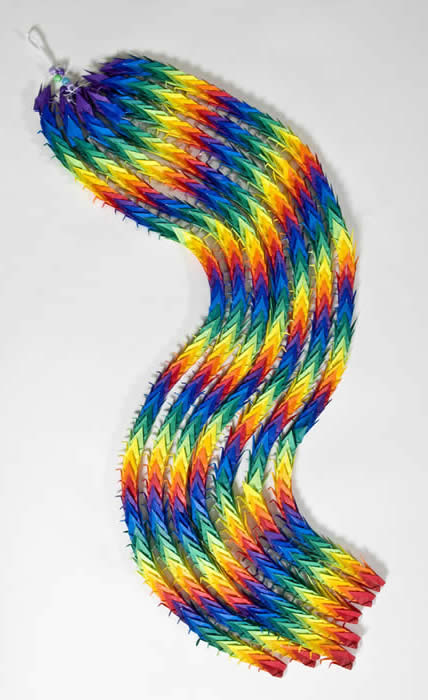The etiology is unknown.
The following factors have been implicated but not proven to cause neuroblastoma:
- Paternal exposure to electromagnetic fields
- Prenatal exposure to alcohol, pesticides, phenobarbital
Genetic Predisposition
A subset of patients exhibit a predisposition to develop neuroblastoma:
- Familial NBL in about 1 - 2% of all cases:
- A subgroup of cases display autosomal dominant inheritance.
- Germline deletion at the 1p36 or 11q14-23 locus is associated with neuroblastoma.
- Mossé et al showed that activating germline mutatios in the ALK gene (the tyrosine kinase domain of the anaplastic lymphoma kinase (ALK) oncogene) account for most cases of hereditary neuroblastoma.
- These germline mutations encode for single-base substitutions in key regions of the kinase domain and result in constitutive activation of the kinase and a pre-malignant state. Mutations resulting in oncogene activation are also somatically acquired in 5 to 15% of neuroblastomas.
- Median age of diagnosis for familial neuroblastoma is 9 months (younger than median).
Associated Conditions
- Children with either sporadic or familial neuroblastoma in conjunction with congenital central hypoventilation syndrome, Hirschsprung’s disease or both usually have loss of function mutations in the homeobox gene PHOX2B.
- Genetic testing for mutations in ALK and PHOX2B should be considered if there is a family history of neuroblastoma or other clinical conditions suggestive of a penetrant transmissible mutation (e.g. bilateral primary tumors of the adrenal glands).
- Testing is currently available to practitioners: (www.ncbi.nlm.nih.gov/sites/GeneTests).
- Other conditions associated with neuroblastoma are:
- Hirschsprung disease
- Congenital central hypoventilation syndrome (CCHS or Ondine’s curse)
- Neurofibromatosis type I
- Beckwith-Wiedemann syndrome
References and Resources:
Recent Advances in Neuroblastoma

